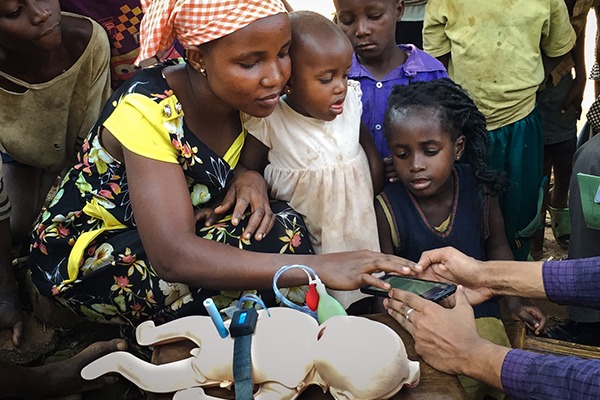BME students identify global health needs by traveling to clinics in Brazil, China, India, and Uganda

For graduate students studying biodesign in the Department of Biomedical Engineering’s Center for Bioengineering Innovation and Design at Johns Hopkins University, the ultimate goal is to develop new medical technologies that will improve the lives of patients around the world. Each summer, these students form teams and travel abroad, working side by side with primary care providers in some of the world’s most underserved communities. Through immersion in the field, students experience firsthand the unique challenges associated with patient care in low-resource environments, allowing them to design solutions that overcome these barriers.
During their month abroad, CBID student teams observe hospital procedures, interview health care providers, and interact with local residents to understand the pressing clinical needs of the community. After returning to the Johns Hopkins Homewood campus in Baltimore, the teams spend the remainder of the school year designing, prototyping, and building solutions to the global health challenges they identify during their travels.
This summer, CBID students are:
- studying infectious disease control in Brazil
- examining the diagnosis and treatment of chronic obstructive pulmonary disease (COPD) in China
- learning about ophthalmology and equitable eyecare in India
- empowering mothers to identify neonatal illness in Uganda and Bangladesh
Read the teams’ blogs, linked above, to follow their journeys and discover what it takes to design the next generation of health care solutions.
